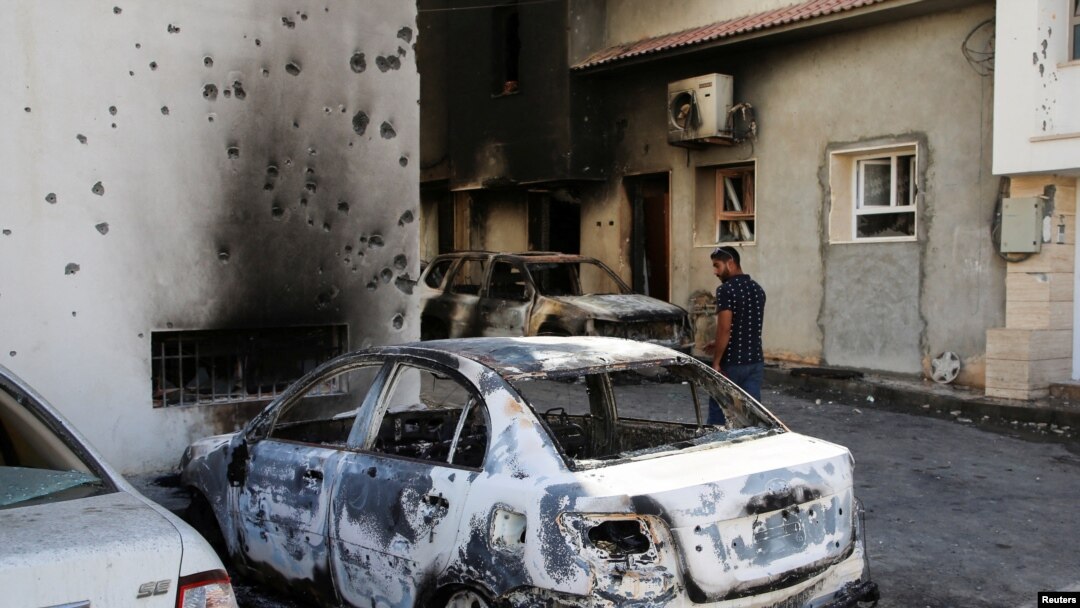Charred cars and buildings pockmarked by bullets scarred Libya's capital on Sunday, the day after intense and lethal fighting appeared to leave the Tripoli government more firmly entrenched.
The Health Ministry said on Sunday that 32 people were killed in Saturday's violence and 159 were injured, without saying how many were fighters and how many were civilians.
On a tour of the city on Sunday, Reuters saw workers clearing glass and debris from streets littered with spent ammunition casings, as fighters aligned with Abdulhamid Dbeibah stood in front of bases seized from forces affiliated with Fathi Bashagha.
Traffic had returned to many roads as residents inspected damage to their property.
The fighting came after months of mounting tensions between backers of Dbeibah and Bashagha, whose rival administrations are vying for control of the North African country which has seen more than a decade of violence since a 2011 uprising.
Armed groups had exchanged fire that damaged several hospitals and set buildings on fire starting Friday evening, the worst fighting in the Libyan capital since a landmark 2020 ceasefire.
Certain armed groups seen as neutral in the latest crisis had moved to back Dbeibah this weekend to push back Bashagha's second attempt to enter the capital.
Bashagha's prospects of seizing control in Tripoli, which lies in west Libya, appear badly dented for now but there is no sign of a broader political or diplomatic compromise to end the struggle for power in Libya..
On Saturday evening, Dbeibah posted a video of himself surrounded by bodyguards and greeting fighters supporting his administration.
Dbeibah's Government of National Unity said fighting had broken out after negotiations to avoid bloodshed in the western city collapsed.
Bashagha denied such talks had taken place, and accused Dbeibah's "illegitimate" administration of "clinging to power".
Local media reported later Saturday that a group of pro-Bashagha militias that had been making their way to the capital from Misrata later turned back.
Both sides exchanged blame on Saturday while world powers appealed for calm.
The UN's Libya mission called for "an immediate cessation of hostilities", citing "ongoing armed clashes including indiscriminate medium and heavy shelling in civilian-populated neighborhoods."
Fire fighters were still trying to extinguish a blaze in a Tripoli apartment block on Sunday morning. A man standing among residents nearby said: "Who will compensate them? And who will bring the dead back to life?"
U.N. Secretary General Antonio Guterres called for an immediate halt to violence and for dialogue to end the impasse.
Analyst Wolfram Lacher wrote on Twitter that Libya's shifting alliances were "a never-ending story".
"The armed groups that found themselves on the same side in yesterday's Tripoli fighting will tomorrow clash over turf, positions and budgets," he wrote.
"The factions that were pro-Dbeibah yesterday will challenge him tomorrow."
This report contains information sourced from Agence France-Presse and Reuters.


